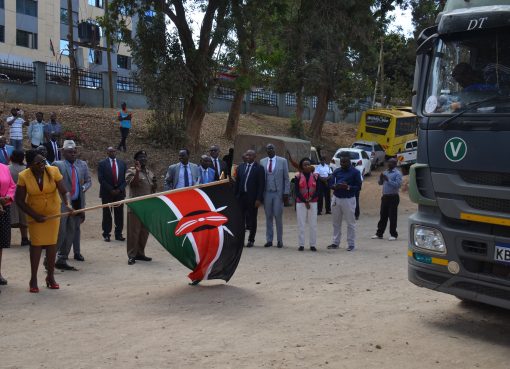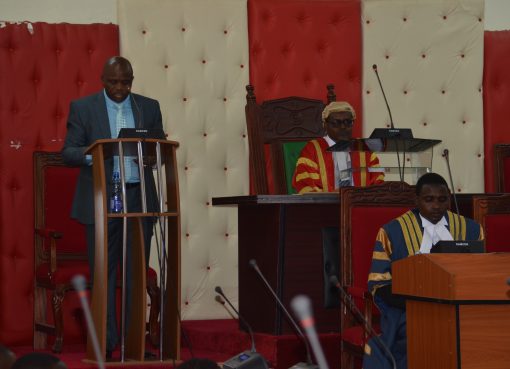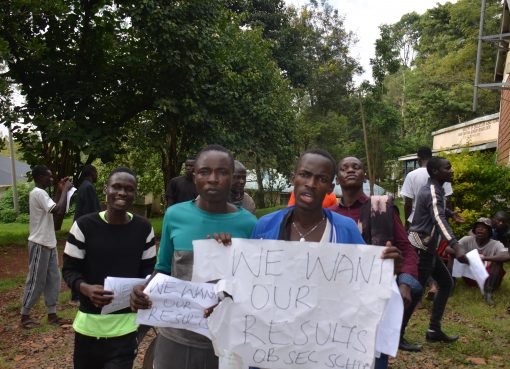The Electric Mobility (E-Mobility) Taskforce team held a public participation forum in Eldoret, Uasin Gishu County, to gather views from the public on the Draft National E-Mobility Policy, Kenya.
Ibrahim Kinyanjui, a taskforce member, pointed out that the major concern is creating awareness about e-mobility’s role in reducing greenhouse gas (GHG) emissions.
“Understanding is the main issue from this forum and others; in terms of how to charge, where, how long it covers per charge, there is a lot of awareness that needs to be done for people to understand and adopt electric vehicles.”
He assured the members of the public that there is no phasing out of the internal combustion engine (ICE) vehicles.
E-mobility’s coming to market is one of the steps the government is taking in line with the Nationally Determined Contribution (NDC) it submitted in 2020 to the United Nations Framework Convention on Climate Change (UNFCCC) Secretariat, which committed to reducing emissions by 32 percent by 2030.
“The reason why the government decided to introduce electric vehicles (EVs) is to reduce greenhouse gas emissions,” he said.
The County Commissioner (CC), Dr. Eddyson Nyale, applauded the efforts by the transport sector to continuously innovate new and improved means of transport through technology.
He added that the transport sector has revolutionised over the years and with the introduction of EVs, the transport sector will immensely contribute to development of infrastructure in the country.
“Transport has evolved over the years, when people used boats, chains, bridges and now vehicles. The vehicles themselves also change with time, like a bus that was used before and may vary in terms of shape and the capacity that it carries presently, an indication that the transport sector is ever-growing,” he noted.
Nyale said that the National E-mobility Policy will contribute to the national development of environmental growth and sustenance through emission of clean energy gases, which are safe for the environment.
He added that the move by the road sector to come up with a policy for roadside hospitality facilities will provide a strategic position for the electronic chargers, where EVs can recharge on the roads.
“Those roadside facilities by public works could be one of the avenues for one to apply and install a charging centre, as people are taking their meals, their vehicles are charging and people carry on with their journey. Let us not only focus on petrol stations but also lay down this strategy through public works using the Mtito Andei approach,” added Nyale.
The County Commissioner affirmed that the introduction of EVs will not only bring growth to the country’s infrastructure but also create employment opportunities for the people.
County Executive Committee Member (CECM), Public Service Management, Administration and Devolved Units, Elijah Kosgei, assured the Task Force that the county government of Uasin Gishu fully supports the new technology due to its many benefits to the people of Kenya.
He explained that EVs are relatively cheap, as they would only require charging as compared to other vehicles, hence enabling people to save on fuel.
Kosgei further noted that EVs will reduce air pollution, hence stopping the continuous depletion of the ozone layer, which has brought about the effects of climate change globally.
Kosgei underscored that the introduction of EVs will have an impact on the business environment and urged the petrol station to be willing to adapt to the changes that will come with the introduction of the EV.
“It will create employment opportunities for our unemployed youths, hence giving them a source of income,” he added.
Kenya Association of Manufacturers (KAM) North Rift Region Chairman, William Ong’are, said that the draft policy should also identify the role played by the private sector and other government agencies to the economy in terms of transport, so as to bring on board all stakeholders for successful implementation.
By Ekuwam Sylvester





